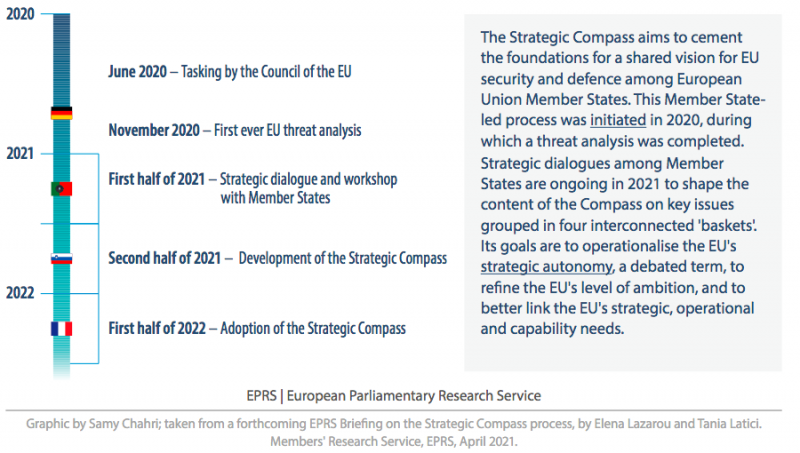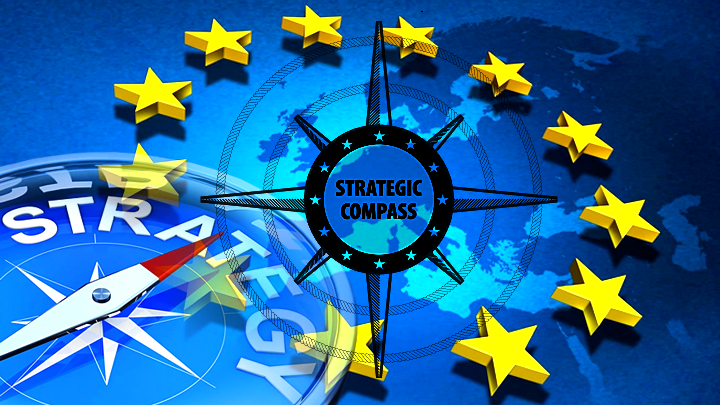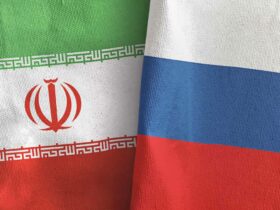The Foreign and Defense Ministers of the European Union convened in Brussels on November 15 and 16. On November 15, the EU held a meeting with its so-called Eastern Partnership, including ministerial representation from Armenia, Azerbaijan, Georgia, the Republic of Moldova and Ukraine.
The Ministers agreed on the 2022 EU budget, added four recently appointed Ministers from the Syrian Arab Republic to their sanctions list, approved new and broader criteria to impose sanctions against Belarus and advanced their cooperation in security matters.
PESCO progress
EU permanent structured cooperation (PESCO) is the main program of military and security cooperation in the European Union. In the current meeting, 14 new projects cooperation were approved in addition to the 46 already existing areas.
The European Council states that new joint projects have started in the following areas: Strategic Air Transport for Outsized Cargo, Medium size Semi-Autonomous Surface Vehicle, Next Generation Small RPAS (tactical drones). Further projects are approved concerning the maritime, air, land, cyber space and space area.
The projects aim at better logistics, more exchange of information and joint development of drones.
Belarus – Ethiopia – Turkey – Sahel
The Ministers discussed a variety of international issues. On Belarus, their final declaration stated a “hybrid aggression against the EU”, where the High Representative for Foreign Affairs and Security, Josep Borell blamed Belarus to “artificially create a migrant’s flow”. The Council agreed on a 5th package of sanctions that will be finalized in the coming days.
The Council also declared its “solidarity with Cyprus” concerning the opening of Maraş (Varosha) located in the Turkish Republic of Northern Cyprus to settlement. An “option paper” is announced for the coming days, which then will be discussed in the December meeting.
Rejecting a “military solution to the crisis” the Council stated to “stand fully” behind attempts to establish a negotiation table between the Ethiopian government and the insurgent TPLF forces from Tigray.
As for the Sahel Zone, the Council agreed to “keep delivering on the implementation of the strategy” and to “establish a dedicated framework for restrictive measure in Mali”. The Council discussed the involvement of the Wagner Group, which is reported to be close to an agreement with the Mali government.
“There is consensus to move forward in order to take restrictive measures against this group,” Josep Borrell said after the meeting.
Strategic Compass: EU intervention force of 5.000 till 2025
Debates on so-called Strategic Compass, initiated in 2020 to develop the Union’s autonomy in defense and security issues were a central element of the summit, where ministers of defense and foreign affairs exchanged views on the first of draft.
In an article published on November 12 ahead of the summit, Borrell, who has prepared the draft, stated it responded three questions: “Which challenges and threats do we face? How can we better pool our assets and manage them effectively? And what is the best way to project Europe’s influence as both a regional and global actor?”

After the summit, ministers have “expressed their willingness to work on it with a view to the adoption of the final Compass in March 2022”, stated the summit’s final declaration.
The Compass is considered the main framework, within which the EU is going to create a joint and autonomous military force. Reuters news agency has had access to the draft titled “EU Rapid Deployment Capacity”.
According to the agency, “We need more rapidity, robustness and flexibility to undertake the full range of military crisis management tasks,” said the draft.
It aims at the creation of a joint military force of up to 5.000 troops by 2025 that shall be able to intervene in a range of crises and without relying on the United States.
Insisting that “NATO remains at the heart of our territorial defense”, Borrell wrote that the EU needs to develop “own capabilities and conducting independent operations in our neighborhood and beyond, especially at a time when US policymakers’ attention may be focused elsewhere (not least on the Indo-Pacific)”.
EU-US relations
The EU ministers had also an informal meeting with NATO Secretary General Stoltenberg, with whom they agreed to work on a “new Joint Declaration on EU-NATO cooperation in the coming months”.
Meanwhile, the European Defence Agency (EDA) also convened under the presidency of Borrell and with participation of the ministers.
Ministers approved a mandate for EDA to start negotiations with the US Department of Defence on the conclusion of an Administrative Agreement (AA). The exact scope and modalities of the AA will be defined during the talks.

















Leave a Reply